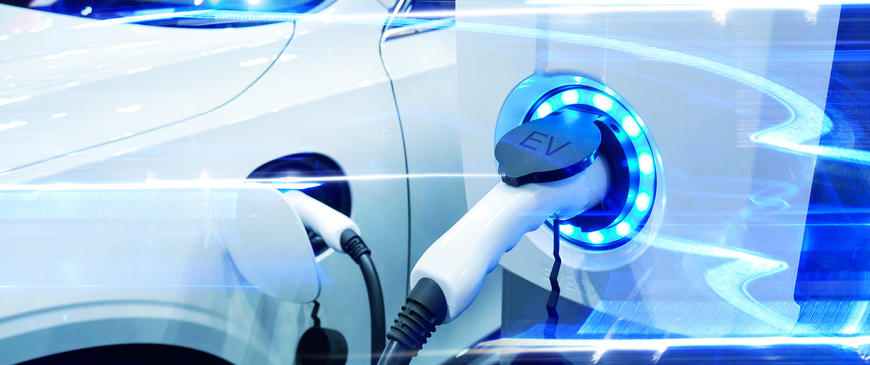
Europe needs to dial down its anxiety over the Inflation Reduction Act
There’s a whiff of hypocrisy about the EU’s response to America’s electric vehicle subsidies — a matter of do what I say rather than do what I do.
After Russia’s invasion of Ukraine, the relationship between the United States and the European Union looked stronger than ever. Yet, mistrust is brewing.
European leaders are now fixated on America’s Inflation Reduction Act (IRA), which promises huge subsidies for electric vehicles (EV) manufactured in the U.S. The country’s Democrats see the IRA as an unprecedented effort to reduce America’s carbon emissions and shut China out of key supply chains. Brussels, meanwhile, sees a protectionist industrial policy that will suck EV investment out of Europe, risking the future of the bloc’s car sector.
But there is a whiff of unrealism and hypocrisy about European complaints regarding the IRA – a matter of do what I say rather than do what I do. And there are several reasons why its fears are misplaced.
European dreams of exporting huge volumes of EVs to the U.S. — or at least attracting a disproportionate share of global EV investment — are a mirage. The EU only has a small share of U.S. car imports today, and this was never likely to change much with the EV revolution
Additionally, the EU itself adopts a protectionist approach to EVs, imposing a default 10 percent import tariff, which is far higher than equivalent U.S. tariffs, and the bloc’s recent free trade agreements provide incentives to on-shore EV supply chains. This type of protectionism, along with the high cost of shipping EVs across borders, means that about 80 percent of EV sales worldwide is of locally produced vehicles. So, it is not a zero-sum game — more production in the U.S. doesn’t necessarily mean less production in Europe.
The IRA is also unlikely to fracture EV supply chains — as the EU argues.
If EV producers want to qualify for IRA tax credits, they must rework their battery supply chains to remove Chinese involvement before those credits expire in eight years’ time — a tall order, indeed. Existing supply chains are already barely coping with increasing demand for EVs, and manufacturers will have to compete hard for the limited supply of rare earths and processing capacity outside China.
Faced with this cost, risk and hassle, however, Western car firms would prefer to decouple from China slowly and partially — if at all — and many are likely to decide that the costs and risks of reworking supply chains outweighs the benefits of a few years of subsidies. Firms make investments and develop supply chains for the long term. For example, former U.S. President Donald Trump’s aggressive but temporary corporate tax cuts did little to attract new foreign investment.
In other words, IRA subsidies could make less difference to investment decisions than Brussels fears.
Perversely, the IRA may even help European firms gain a competitive advantage over some of their American counterparts, cementing European firms’ leadership in the EV sector. Several large European auto manufacturers already have manufacturing facilities in the U.S. and are less dependent on China than several American EV producers.
Overall, the administration of U.S. President Joe Biden has been relatively sympathetic to Europe over the IRA. Indeed, many in Washington are genuinely bewildered at Europeans’ anxiety and reaction, as they see the Continent maintaining high tariffs on imported EVs, lavishing taxpayer funds on its own “strategic” industries like chips, and reducing its dependency on American big tech instead of decoupling from China. Despite all this, the administration has been closely engaging with the EU to help ensure the policy is implemented in ways that still allow European-made EVs to benefit.
In response to these overblown fears about the future of European industry — which is already struggling with high energy costs — some EU member countries want to permanently loosen Brussels’ restrictions on state aid. However, such a decision would pose huge risks for the EU, breeding resentment from the bloc’s poorer members who can’t afford to subsidize national champions — unlike France and Germany.
It could also contribute to a wasteful subsidy race with the U.S. that the EU simply isn’t equipped to win — just look at its paltry attempt to compete with America’s microchip industry subsidies: The EU hopes its Chips Act will generate €43 billion in investment, but much of that relies on repurposing existing chips funding and heroic assumptions about private investment. The plan doesn’t even come close to matching America’s $53 billion campaign.
The EU can’t assume businesses make long-term investments based on short-term sweeteners like those in the IRA. And even if that were true, it’s not a game the EU is ready for. Instead, Europe should take a more measured and less radical approach to China than America does — focusing on trade diversification and deepening its single market rather than resorting to protectionism.
Europe can ultimately prove itself to be a more stable bet for business than a politically polarized America — but that means avoiding the temptation to overreact to U.S. policies.
Zach Meyers is a senior research fellow at the Centre for European Reform.
